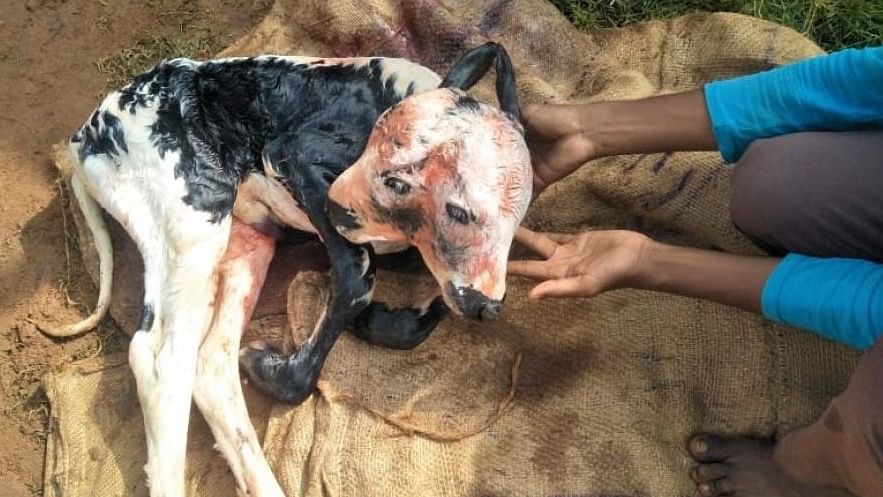
File Photo: A cow calf with two heads.
Credit: DH File Photo
Kinnigoli: In a rare event, a calf with two heads was born in the Kinnigoli area of Mangaluru. The calf, which has captured the attention of locals and veterinarians alike, is currently in good health, though its future remains uncertain.
Jayaram Jogi, whose cow gave birth to the calf, said the calf was born on Tuesday (September 17) and that the cow has not rejected the calf. However, the calf has not yet started suckling from the cow and is being fed from a feeding bottle.
According to veterinarian sources, medically, the calf exhibits a condition known as polycephaly. This particular calf has two heads joined together, sharing a single body. It has four eyes, but only the outer two are functional, while the middle two are non-operational.
The calf also faces significant challenges. It is unable to stand on its own due to the disproportionate weight of its heads compared to its body, necessitating bottle feeding. Efforts to help the calf stand have been hindered by its difficulty in maintaining balance.
A local veterinarian has examined the calf and confirmed that it is healthy for now. However, the calf’s long-term survival will depend heavily on the care it receives. Polycephalic calves are often stillborn or survive only for a short period, making this calf’s current health status particularly noteworthy.
The family that owns the calf and a panel of people who have knowledge of cow rearing are keeping their fingers crossed about the survival of the calf, but are sparing no efforts to make the calf comfortable and gain mobility on its own.
The Mulky Taluk veterinary department officials, however, state that if the calf can sustain itself with normal suckling behaviour while feeding, it has a fair chance of survival for a longer time. But the challenges posed by its rare condition may cause health issues, they said.